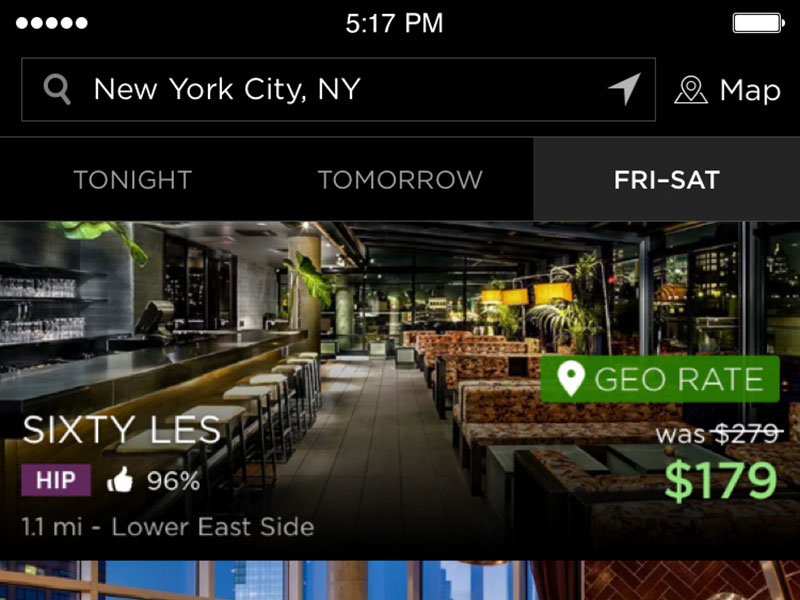Airbnb agrees purchase of last-minute booking app HotelTonight
The purchase of HotelTonight should broaden Airbnb’s offering, helping the home-sharing company develop into a fully fledged travel service ahead of its initial public offering, which is expected to take place later this year

By partnering with establishments in the Americas, Europe and Australia, HotelTonight offers unsold rooms and catering to travellers looking to make last-minute arrangements. Image © HotelTonight
On March 7, home-sharing company Airbnb announced it had purchased last-minute hotel booking service HotelTonight for an undisclosed fee. The acquisition will help broaden the San-Francisco-based tech giant’s travel offering ahead of plans to go public later this year.
The acquisition is part of a wider branding overhaul taking place at Airbnb. The firm recently revealed plans to introduce tours and immersive trips led by local experts in 12 cities across the world, including Havana, Detroit and London. Within a year, Airbnb hopes to extend its new services to 50 cities.
HotelTonight – also based in San Francisco – was valued at $463m during its most recent funding round in 2017. Its backers include Accel, Battery Ventures, First Round Capital, Coatue Management and GGV Capital. HotelTonight has raised $131m in its nine years of operation.
The acquisition of HotelTonight is part of a wider branding overhaul currently taking place at Airbnb
By partnering with establishments in the Americas, Europe and Australia, HotelTonight offers unsold rooms and catering to travellers looking to make last-minute arrangements. The company will maintain its own brand and website following the purchase, but some of its listings will also appear on Airbnb’s platform.
In a statement announcing the acquisition, Airbnb said: “We are making it easier for people who use Airbnb to find last-minute places to stay when Home hosts are often already booked. The availability of boutique hotels – in addition to private rooms and entire homes that are instantly bookable – helps ensure authentic, high-quality stays are available on demand, especially at the last minute.”
Airbnb, which launched in 2008, expects to have surpassed 500 million guest arrivals by the end of Q1 2019. The firm’s rapid expansion has often put it at odds with regulators and lawmakers at both a local and national level, with concerns often centring on the inflationary affect listings can have on the rent being paid by local residents.
A number of unicorn tech start-ups are seeking to go public in 2019. Lyft recently unveiled its S-1, while Uber, Slack and Pinterest are set to follow. It is thought that Airbnb has also targeted a public listing by June 2019 – expanded services should make it a more attractive option to investors.













